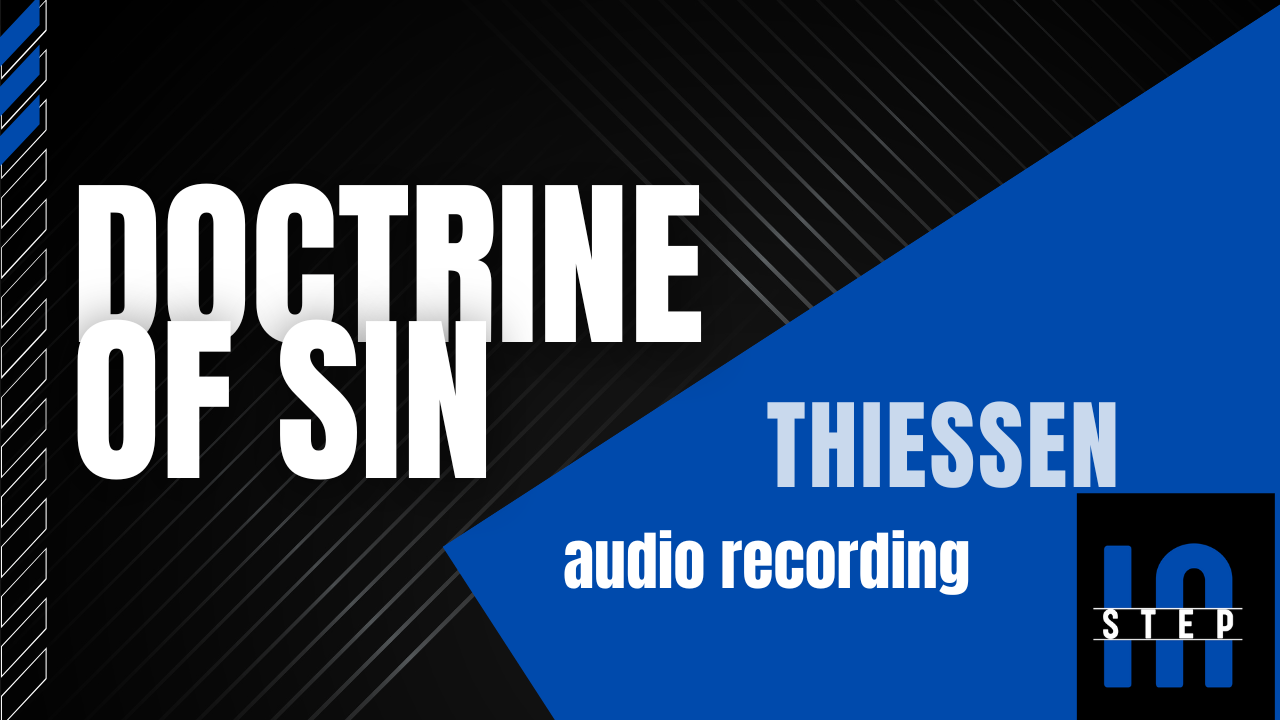YouTube
Intro to Book of Hebrews
N.E.T Version
Book of Hebrews
Chapter 1
1 After God spoke long
ago in various portions and in various
ways to our ancestors through the prophets ,
2 in these last days he has spoken to us in a son , whom he
appointed heir of all things , and through whom he
created the world .
3 The Son is the radiance of his glory and the representation of his essence , and he sustains all things by his powerful word ,and so when he had accomplished cleansing for sins, he sat down at the right hand of the Majesty on high.
4 Thus he became so far better than the angels as he has inherited a name superior to theirs.
The Son Is Superior to Angels
5 For to which of the angels did God ever say, “You are my son! Today I have fathered you”? And in another place he says, “I will be his father and he will be my son.”
6 But when he again brings his firstborn into the world, he says, “Let all the angels of God worship him!”
7 And he says of the angels, “He makes his angels winds and his ministers a flame of fire,”
8 but of the Son he says,“Your throne, O God, is forever and ever,and a righteous scepter is the scepter of your kingdom.
9 You have loved righteousness and hated lawlessness. So God, your God, has anointed you over your companions with the oil of rejoicing.”
10 And,“You founded the earth in the beginning, Lord,and the heavens are the works of your hands.
11 They will perish, but you continue.And they will all grow old like a garment,
12 and like a robe you will fold them upand like a garment they will be changed,but you are the same and your years will never run out.”
13 But to which of the angels has he ever said, “Sit at my right hand until I make your enemies a footstool for your feet”?
14 Are they not all ministering spirits, sent out to serve those who will inherit salvation?
KEY DOCTRINES
(5) KEY DOCTRINES
(5) KEY DOCTRINES
(1) Special Revelation
(2) Divinity of Christ
(3) Sin
(4) Atonement
(5) New Heaven/Earth
Doctrine of
Special Revelation
Scholarly Treatment
by
Theologian B.B. Warfield here

(1) SPECIAL REVELATION
Hebrews Chapter 1: v 1-2 = Special Revelationauthor: B.B. Warfield
Revelation+

AUDIO VERSION
title
Listen to audio version of the provided excerpt. Full recording of entire document coming soon!
B.B Warfield Special Revelation
The Biblical Idea Of Revelation
By B.B. Warfield
1. THE NATURE OF REVELATION
2. THE PROCESS OF REVELATION
3. MODES OF REVELATION
The religion of the Bible is a frankly supernatural religion. By this is not meant merely that, according to it, all men, as creatures, live, move and have their being in God. It is meant that, according to it, God has intervened extraordinarily, in the course of the sinful world’s development, for the salvation of men otherwise lost. In Eden the Lord God had been present with sinless man in such a sense as to form a distinct element in his social environment (Gen. iii. 8). This intimate association was broken up by the Fall. But God did not therefore withdraw Himself from concernment with men. Rather, He began at once a series of interventions in human history by means of which man might be rescued from his sin and, despite it, brought to the end destined for him. These interventions involved…
the segregation of a people for Himself, by whom God should be known, and whose distinction should be that God should be “nigh unto them” as He was not to other nations (Deut. iv. 7; Ps. cxlv. 18). But this people was not permitted to imagine that it owed its segregation to anything in itself fitted to attract or determine the Divine preference; no consciousness was more poignant in Israel than that Jehovah had chosen it, not it Him, and that Jehovah’s choice of it rested solely on His gracious will. Nor was this people permitted to imagine that it was for its own sake alone that it had been singled out to be the sole recipient of the knowledge of Jehovah; it was made clear from the beginning that God’s mysteriously gracious dealing with it had as its ultimate end the blessing of the whole world (Gen. xii. 2.3; xvii. 4.5.6.16; xviii. 18; xxii. 18; cf Rom. iv. 13),
the bringing together again of the divided families of the earth under the glorious reign of Jehovah, and the reversal of the curse under which the whole world lay for its sin (Gen. xii. 3). Meanwhile, however, Jehovah was known only in Israel. To Israel God showed His word and made known His statutes and judgments, and after this fashion He dealt with no other nation; and therefore none other knew His judgments (Ps. cxlvii. 19 f.). Accordingly, when the hope of Israel (who was also the desire of all nations) came, His own lips unhesitatingly declared that the salvation He brought, though of universal application, was “from the Jews” On. iv. 221). And the nations to which this salvation had not been made known are declared by the chief agent in its proclamation to them to be, meanwhile, “far off,” “having no hope” and “without God in the world” (Eph. ii. 12),
because they were aliens from the commonwealth of Israel and strangers from the covenant of the promise. The religion of the Bible thus announces itself, not as the product of men’s search after God, if haply they may feel after Him and find Him, but as the creation in men of the gracious God, forming a people for Himself, that they may show forth His praise. In other words, the religion of the Bible presents itself as distinctively a revealed religion. Or rather, to speak more exactly, it announces itself as the revealed religion, as the only revealed religion; and sets itself as such over against all other religions,
which are represented as all products, in a sense in which it is not, of the art and device of man. It is not, however, implied in this exclusive claim to revelation -which is made by the religion of the Bible in all the stages of its history -that the living God, who made the heaven and the earth and the sea and all that in them is, has left Himself without witness among the peoples of the world (Acts xiv. 17). It is asserted indeed, that in the process of His redemptive work, God suffered for a season all the nations to walk in their own ways; but it is added that to none of them has He failed to do good, and to give from heaven rains and fruitful seasons
filling their hearts with food and gladness. And not only is He represented as thus constantly showing Himself in His providence not far from any one of them, thus wooing them to seek Him if haply they might feel after Him and find Him (Acts xvii. 27), but as from the foundation of the world openly manifesting Himself to them in the works of His hands, in which His everlasting power and Divinity are clearly seen (Rom. i. 20). That men at large have not retained Him in their knowledge, or served Him as they ought, is not due therefore to failure on His part to keep open the way to knowledge of Him, but to the darkening of their senseless hearts by sin and to the vanity of their sin[1]deflected reasonings (Rom. i. 21 ff.), by means of which they have supplanted the truth of God by a lie and have come to worship and serve the creature rather than the ever-blessed Creator.
It is, indeed, precisely because in their sin they have thus held down the truth in unrighteousness and have refused to have God in their knowledge (so it is intimated) ; and because, moreover, in their sin, the revelation God gives of Himself in His works of creation and providence no longer suffices for men’s needs, that God has intervened supernaturally in the course of history to form a people for Himself, through whom at length all the world should be blessed. It is quite obvious that there are brought before us in these several representations two species or stages of revelation, which should be discriminated to avoid confusion. There is the revelation which God continuously makes to all men: by it His power and Divinity are made known. And there is the revelation which He makes exclusively to His chosen people: through it His saving grace is made known.
Both species or stages of revelation are insisted upon throughout the Scriptures. They are, for example, brought significantly together in such a declaration as we find in Ps. xix : “The heavens declare the glory of God . . . their line is gone out through all the earth” (vers. 1.4) ; “The law of Jehovah is perfect, restoring the soul” (ver. 7). The Psalmist takes his beginning here from the praise of the glory of God, the Creator of all that is, which has been written upon the very heavens, that none may fail to see it. From this he rises, however, quickly to the more full-throated praise of the mercy of Jehovah, the covenant God, who has visited His people with saving instruction. Upon this higher revelation there is finally based a prayer for salvation from sin, which ends in a great threefold acclamation, instinct with adoring gratitude: “O Jehovah, my rock, and my redeemer ” (ver, 14). “The heavens,” comments Lord Bacon, “indeed tell of the glory of God, but not of His will according to which the poet prays to be pardoned and sanctified.” In so commenting, Lord Bacon touches the exact point of distinction between the two species or stages of revelation.
The one is adapted to man as man; the other to man as sinner; and since man, on becoming sinner, has not ceased to be man, but has only acquired new needs requiring additional provisions to bring him to the end of his existence, so the revelation directed to man as sinner does not supersede that given to man as man, but supplements it with these new provisions for his attainment, in his new condition of blindness, helplessness and guilt induced by sin, of the end of his being. These two species or stages of revelation have been commonly distinguished from one another by the distinctive names of natural and supernatural revelation, or general and special revelation, or natural and soteriological revelation. Each of these modes of discriminating them has its particular fitness and describes a real difference between the two in nature, reach or purpose.
The one is communicated through the media of natural phenomena, occurring in the course of Nature or of history; the other implies an intervention in the natural course of things and is not merely in source but in mode supernatural. The one is addressed generally to all intelligent creatures, and is therefore accessible to all men; the other is addressed to a special class of sinners, to whom God would make known His salvation. The one has in view to meet and supply the natural need of creatures for knowledge of their God; the other to rescue broken and deformed sinners from their sin and its consequences. But, though thus distinguished from one another, it is important that the two species or stages of revelation should not be set in opposition to one another,
or the closeness of their mutual relations or the constancy of their interaction be obscured. They constitute together a unitary whole, and each is incomplete without the other. In its most general idea, revelation is rooted in creation and the relations with His intelligent creatures into which God has brought Himself by giving them being. Its object is to realize the end of man’s creation, to be attained only through knowledge of God and perfect and unbroken communion with Him. On the entrance of sin into the world, destroying this communion with God and obscuring the knowledge of Him derived from Nature, another mode of revelation was necessitated, having also another content, adapted to the new relation to God and the new conditions of intellect, heart and will brought about by sin.
It must not be supposed, however, that this new mode of revelation was an ex post facto expedient, introduced to meet an unforeseen contingency. The actual course of human development was in the nature of the case the expected and the intended course of human development, for which man was created; and revelation, therefore, in its double form was the Divine purpose for man from the beginning, and constitutes a unitary provision for the realization of the end of his intervention in the natural course of things and is not merely in source but in mode supernatural. The one is addressed generally to all intelligent creatures, and is therefore accessible to all men; the other is addressed to a special class of sinners, to whom God would make known His salvation.
The one has in view to meet and supply the natural need of creatures for knowledge of their God; the other to rescue broken and deformed sinners from their sin and its consequences. But, though thus distinguished from one another, it is important that the two species or stages of revelation should not be set in opposition to one another, or the closeness of their mutual relations or the constancy of their interaction be obscured. They constitute together a unitary whole, and each is incomplete without the other. In its most general idea, revelation is rooted in creation and the relations with His intelligent creatures into which God has brought Himself by giving them being. Its object is to realize the end of man’s creation, to be attained only through knowledge of God and perfect and unbroken communion with Him.
On the entrance of sin into the world, destroying this communion with God and obscuring the knowledge of Him derived from Nature, another mode of revelation was necessitated, having also another content, adapted to the new relation to God and the new conditions of intellect, heart and will brought about by sin. It must not be supposed, however, that this new mode of revelation was an ex post facto expedient, introduced to meet an unforeseen contingency. The actual course of human development was in the nature of the case the expected and the intended course of human development, for which man was created; and revelation, therefore, in its double form was the Divine purpose for man from the beginning, and constitutes a unitary provision for the realization of the end of his creation in the actual circumstances in which he exists.
Doctrine of
Divinity of Christ
Scholarly Treatment
by
Theologian Geerhardus Vos here

(2) DIVINITY OF CHRIST
Hebrews Chapter 1: v2c-3b = Divinity Of Christauthor: Geerhardus Vos
the logos

AUDIO VERSION
title
Listen to audio version of the provided excerpt. Full recording of entire document coming soon!
Geerhardus Vos The Logos
GEERHARDUS VOS
THE RANGE OF THE LOGOS-TITLE IN THE PROLOGUE TO THE FOURTH GOSPEL
Notwithstanding the great amount of exegetical labor expended on the Fourth Gospel, much of it with the special end in view of ascertaining its doctrinal character, some of the foremost biblico-theological problems to which the Gospel gives rise still remain sub judice. One of these is the question of the precise reference of the chief christological titles employed. Are these titles given to Christ from the point of view of the preincarnate state and thence carried into the incarnate life of the Saviour, or does the Evangelist use them of the incarnate Christ exclusively, so that they lack all bearing on the premundane and preincarnate stages of our Lord’s existence? In the former case their significance will not be confined to the sphere of soteriology, or of christology in its purely soteriological aspect, but will extend into the doctrines of creation and providence, and may even reach up into the ontological problem of the divine nature and mode of existence as contemplated in themselves.
As indicated by our form of statement there is no absolute alternative involved: reference of these titles to the preincarnate Christ does not exclude, but includes, their application to the incarnate life as well. The exclusiveness is found with the defenders of the view according to which the names describe the God-Man and predicate of Him something that is true only in virtue of the incarnation. What applies to the original existence of Christ will remain true and continue operative in the life on earth, but the rule does not work conversely, that what applies to the incarnate state must necessarily reach back into the life preceding the incarnation. The sole point at issue therefore is, whether the attributes or functions expressed by the names under debate first originated when Christ appeared in the flesh, or whether their emergence in the earthly life of Jesus is a mere continuation, in a new concrete form, of something that had been predicable of Him before.
In order to preclude confusion of thought another distinction should be drawn at the outset. It is one thing to ascribe to the Evangelist the use of one or more of these names as significant of relations and functions pertaining to Christ in the preincarnate or premundane state, and quite another thing to believe that he uses them loosely, by way of anticipation, where he speaks of the Saviour’s original existence, fully conscious that in the strict sense of the terms they belong to the later stage of His life. The mere fact that one of these names and some preincarnate or originally divine attribute are joined together cannot, without more, be held to prove the inherent reference of that name to the larger or eternal aspects of Christ’s Person. The use of a name is often far wider than the range of its inherent significance or of the point of view which originally determined its choice. When certain things are af- firmed in connection with the Logos, it by no means follows that He is called the Logos in virtue of these things or even was the Logos when these things took place.
The Evangelist’s intention might simply be to affirm the things referred to of Him who afterwards and for other reasons came to be the Logos. We shall, therefore, have to put the question sharply in each separate case, whether the function affirmed is a function of the Person of Christ in general, here incidentally called Logos, or a function specifically connected with his Logos-character, a Logos-function as such, the nature of the function inducing the use of the name. The three titles in regard to which the said difference of opinion prevails are Logos, Son of God, Only-Begotten Son (or God Only-Begotten). As more or less formal names of the Saviour they are clearly distinct from other designations which partake rather of the nature of descriptive metaphors. It is true, Zahn denies this of Logos and would consider it as a figure entirely on a line with “the life”,
“the light”, “the vine”. Even when the Evangelist singles it out from among other metaphors applied to Christ, to use it as subject for a number of statements, this is done, Zahn thinks, with full consciousness of the metaphorical intent, so that, in order to render the writer’s meaning exactly, one would have to paraphrase: In the beginning was He who may be fitly compared to the word of God, etc. 1 It is, however, doubtful whether the Gospel ever uses other conceptions such as “light” and “life”, without additional qualification, entirely after the same fashion as Logos, to designate the Person of Christ in the concrete. The Prologue says: “the Logos was”, but: “in Him was life”, “and the life (that was in Him) was the light of men”. “The life” and “the light” remain abstract conceptions, although, of course, their reality is concentrated in the personal Christ. In verses 7, 8, it is true, (THE LIGHT) is used as a designation of the historic Jesus. By the side of this may be placed iii. 19-21, although here the personal interpretation is not necessary. But even so there remains a perceptible difference between such a way of speaking, where the identification of the person with the abstract idea is led up to by previous statement, and the procedure of verse 1 in the Prologue, where, wholly without preliminaries, (THE WORD) is introduced as a fixed designation.
we have sufficient warrant, therefore, for placing (THE WORD) on a line with the other two designations as a formal name of Christ. The various positions taken in regard to these names may be classified as follows. First there is the extreme view of Zahn, who would restrict all three to the manifestation of Christ in the flesh. 3 Zahn, of course, finds in John the doctrine of a real preexistence of Christ, but in his view no denomination applies to the preexistent one as such except the simple (GOD) Next comes the view which after the same manner restricts “Son” and “Only-Begotten”, but allows an exception for Logos regarding this at least as a name applicable to the preincarnate, if not the premundane, Christ. Among the advocates of this view may be named Liicke, 4 Luthard, 5 Weiss, 6 Beyschlag, 7 and Harnack. 8 One step farther go those who
Begotten”, together with Logos to the premundane and preincarnate Christ, but place the simple “Son” this side of the incarnation. This is given as the view of Biedermann and Schanz. 9 Formally resembling it, but with a different distribution of the names, is the view of Belser, who, like Zahn, makes Logos a designation of the incarnate Christ, but speaks of “the eternal only-born Son of God in his historical appearance”, making both the other titles refer to the Saviour in his pretemporal existence. 10 Finally there are those who make the simple “Son” follow Logos and Monogenes into the class of names descriptive of the preexistent, eternal Christ. 11 Among the numerous representatives of this group may be named Godet,
Meyer, 13 Keil, 14 Kostlin , 15 Hilgenfeld , 16 Scholten, 17 Immer, 18 Thoma, 19 Pfleiderer, 20 Lipsius, 21 Oscar Holtz[1]mann. 22 It is moreover the view which has behind it the weight of authority of the orthodox church-tradition from the time of Origen onward. 23 A glance at these several views and at the distribution of the prominent names connected with them suggests the following significant fact. The traditional exegesis of the orthodox church in tracing back these distinctive names of Christ to the state of preexistence receives support from the foremost representatives of the extreme critical school, which in its estimate of the date, the provenience and the historical truthfulness of the Gospel stands at the farthest remove from the conservative and apologetic position in regard to such matters. And on the other hand the great modern apologetes of the Gospel who have done so much to vindicate the orthodox view of the church in regard to its Apostolic origin and trustworthiness show not seldom a tendency to part company with the church-exegesis so far as the titles under review are concerned, assigning one or two or even all three of them to the incarnate Christ and insisting in the same measure upon their non-applicability to the immanent Godhead, the opposite of which the orthodox theology has always emphatically maintained, its interest lying in the defense of the deity of Christ which seems so obviously bound up with the pretemporal reference of these names.
The phenomenon here noted is not, of course, an isolated one; it furnishes but one striking instance of the curious alignment which in exegetical and biblico-theological matters tends to group together conservative scholars with their extreme critical antipodes and to force apart the same conservative scholars from such as are their natural allies in the great critical debate. A high exegesis is joined to a low critical view of the Gospel, and a high critical estimate of the Gospel in the case of the apologetes is accompanied by a low exegesis. But mystifying as this alignment at first sight may be, it is quite capa[1]ble of rational explanation. The negative critical school, especially in its older Tubingen form, contended that the Gospel is essentially a philosophico-theological document, that it contains speculation and not, in the main, history, and that in this speculative complexion the teaching of Jesus which it pretends to record is radically distinct from and irreconcilable with the kind of teaching preserved in the Synoptics.
It is therefore natural for this school of critics to find not only a solid substance of doctrine in the Gospel, but also to consider the doctrine found of the highest speculative type. Now this inevitably brings their exegetical conclusions into close touch with the church-the[1]ology, for the church has always found in the Fourth Gospel the main source for its teaching on the deep things of the Godhead. On the other hand it is but human in the apologetes of the historical character of the Gospel to endeavor to approximate its doctrinal content as much as possible to the current conception of the Synoptical teaching of Jesus, for the simple reason that thus one of the chief obstacles to its historicity can be removed. Thus it comes about that a certain predilection not only for an un[1]speculative, but even for an untheological and undoctrinal interpretation of the statements of the Gospel can be observed in apologetic circles. The tendency becomes doubly strong where it receives reinforcement from the widely[1]prevailing Ritschlian antipathy to everything that savors of the speculative and metaphysical in Christian teaching.
Harnack’s exegesis of the Gospel with its sharp distinction between the speculatively colored Prologue and the absolutely undoctrinal body of the Gospel and its refusal to recognize the Prologue as in any sense a programme for the Gospel-teaching, making it a mere accommodation to the standpoint of the readers, clearly reveals the influence of this latter motive. But the tendency as such is not de[1]pendent on this secondary influence for its existence. It is plainly perceptible in cases where every suspicion of Ritschlian sympathies is excluded, e.g., in the case of so ortho[1]dox a writer as Zahn. For such as still set store by the great theological doctrines for which the Fourth Gospel preeminently has furnished the basis, and therefore continue to attach not merely an historical, but also a specific[1]ally theological value to its teaching, the tendency spoken of may easily seem fraught with the danger of depriving whatever success has attended the apologetic efforts on behalf of the historicity of the Gospel of much of its value.
One may be inclined to feel that the historical character of the document has been saved at the expense of its theological importance. We are encouraged to maintain or regain our confidence in the actual provenience of this body of teaching from the lips of Jesus, but somehow in the apologetic process which has restored our confidence the former richness and pregnancy and distinctiveness of the teaching seem to have been lost to such an extent, that we are no longer able to reap from it any appreciable addition to our store of knowledge obtained from the Synoptical sources. As already stated, among the doctrines thus affected the Christological truths which have always been considered characteristic of our Lord’s Johannine teaching stand out prominently. Among these again the Logos-doctrine occupies an important place. It is a matter of considerable moment, theologically speaking, whether Christ bears this name in connection with his appearance in the flesh and his soteriological activity, or whether it belongs to Him in vir- tue of what He is and does apart from and antecedently to his work as incarnate Saviour of the world.
In attempting to register the theological consequences of the adoption of the former view, we naturally think first of the doctrine of the Trinity, specifically of the relation within the Godhead between the Father and the Son. The name Logos has long since been understood as intended to throw light on this trinitarian mystery. The point of comparison is given a psychological turn and the thought results that as the logos stands related to the person who produces it, so the Son stands related to the Father. In other words the idea of the eternal generation of the Son by the Father is found ex- pressed in the Logos-name. The name characterizes this generation as an intellectual process. 24 The ontological interpretation or the Logos-name either in this specialized or in a more general form is not confined to the older and oldest exponents of the church-theology; it still finds advocates among modern exegetes both of the orthodox and of the liberal school, although, owing to the fact that the question is seldom raised in a sufficiently pointed and explicit form, it proves difficult to ascertain the opinion of most writers in regard to it…..
Doctrine of
Sin
Scholarly Treatment
by
Theologian Henry Clarence Thiessen here

(3) SIN (The Fall of Man)
Hebrews Chapter 1: v3c Cleansing of Sin = Reality of Sin AUTHOR: Thiessen
title: sin

AUDIO VERSION
title
Listen to audio version of the provided excerpt. Full recording of entire document coming soon!
YouTube
Doctrine of Sin by Henry Thiessen
DOWNLOAD FULL PDF
- pg 1
- pg 2
- pg
- pg
- pg
- pg
- pg
- pg
- pg
- pg
- pg
- pg
- pg
- pg
- pg
- pg
- pg
- pg
- pg
- pg
- pg
- pg
- pg
- pg
- pg
- pg
- pg
- pg
- pg
- pg
- pg
- pg
- pg
THE NATURE OF SIN
Some theologians understand sin as “lack of conformity to the moral law of God, either in act, disposition, or state, “4 whereas others define it as “anything in the creature which does not express, or which is contrary to, the holy character of the Creator. “5 No doubt both of these are correct, for moral law is a reflection of God’s character. That sin is transgression of law is clear in Scripture (Rom. 7:7-13; Gal. \ 3:10, 12; James 2:8-12; 1 John 3:4), and that it relates to God’s character is also evident. When Isaiah saw God in his holiness, he recognized his own sinfulness (Isa. 6:1-6; cf. Job 42:5f. ; Luke 5 : 8 ; Rev. 1: 17). God is holy and we are to conform to his holiness; anything short of this is sin (Lev. 19:2; 1 Pet. 1:15f.).
Sin is a violation of the law of God.
Sin is want of conformity to, or transgression of, the law of God. Since we are moral and rational creatures, we are of necessity subject to the law of right. The only question is, what that law may be. Hodge points out that it is not (1) our reason, for then every man is a law unto himself and then there can be no sense of guilt; (2) the moral order of the universe, for this is but an abstraction and can neither impose obligation nor inflict penalty; (3) regard for the happiness of the universe, for it is manifest that happiness is not necessarily synonymous with goodness; (4) our own happiness, for such a view makes expediency the rule of right and wrong; but (5) that it is subjection to the rule of a rational being, God, who is infinite, eternal, and immutable in his perfections.6 The law of God is summarized in the words of Jesus, ” ‘You shall love the Lord your God with all your heart, and with all your soul, and with all your mind.’ This is the great and foremost commandment. And a second is like it, ‘You shall love your neighbor as yourself.’ On these two commandments depend the whole Law and the Prophets” (Matt. 22:3740). Both the Old and New Testaments use various terms for sin and sinning. Some of these are: sin (Gen. 18:20; Rom. 3:23), disobedience (Rom. 5:19), iniquity (Lev. 26:40), lawlessness (Titus 2:14), transgression (Exod. 23:21; 1 Tim. 2:14), trespass (Eph. 2:1), ignorance (Heb. 9:7), godlessness (1 Pet. 4:18), wickedness (Prov. 11:31), unbelief (Rom. ll:20), unrighteousness (1 John 1:9), unjustness (Deut. 25:16), and unholiness (1 Tim. 1:9). Several specific clarifications concerning the relation between the law and sin must be noted. (1) Failure to do what the law enjoins is as much sin as doing what it forbids. There are sins of omission as well as of commission (James 4:17; cf. Rom. 14:23). (2) To fail in one point is to be guilty of the whole (Gal. 3: 10; James 2: 10). One needs to break but one of God’s commandments to be guilty in his sight. (3) Ignorance of a law does not excuse a man. “That slave who knew his master’s will and did not get ready or act in accord with his will, shall receive many lashes, but the one who did not know it, and committed deeds worthy of flogging, will receive but few. And from everyone who has been given much shall much be required; and to whom they entrusted much, of him they will ask all the more” (Luke 12:47f.).
Doctrine of
Atonement
Scholarly Treatment
by
Theologian Stephen Smalley here

(4) Atonement (Remedy For Sin)
Hebrews Chapter 1: v3c-4author Smalley
atonement

AUDIO VERSION
title
Listen to audio version of the provided excerpt. Full recording of entire document coming soon!
YouTube
Atonement
Doctrine of
New Heaven & New Earth

(5) New Heaven & New Earth
Hebrews Chapter 1: v10-12 A NEW AGE = New Heaven New EarthnEW HEAVEN/EARTH

AUDIO VERSION
title
Listen to audio version of the provided excerpt. Full recording of entire document coming soon!
YouTube
New Heaven & New Earth
- Table of Contents
- pg 1
- pg 2
- pg
- pg
- pg
- pg
- pg
- pg
- pg
- pg
- pg
- pg
- pg
- pg
- pg
- pg
- pg
- pg
- pg
- pg
- pg
- pg
- pg
- pg
- pg
- pg
- pg
- pg
- pg
- pg
- pg
- pg
- pg
New heaven & New earth coming soon.
The religion of the Bible is a frankly supernatural religion. By this is not meant merely that, according to it, all men, as creatures, live, move and have their being in God. It is meant that, according to it, God has intervened extraordinarily, in the course of the sinful world’s development, for the salvation of men otherwise lost. In Eden the Lord God had been present with sinless man in such a sense as to form a distinct element in his social environment (Gen. iii. 8). This intimate association was broken up by the Fall. But God did not therefore withdraw Himself from concernment with men. Rather, He began at once a series of interventions in human history by means of which man might be rescued from his sin and, despite it, brought to the end destined for him. These interventions involved…
the segregation of a people for Himself, by whom God should be known, and whose distinction should be that God should be “nigh unto them” as He was not to other nations (Deut. iv. 7; Ps. cxlv. 18). But this people was not permitted to imagine that it owed its segregation to anything in itself fitted to attract or determine the Divine preference; no consciousness was more poignant in Israel than that Jehovah had chosen it, not it Him, and that Jehovah’s choice of it rested solely on His gracious will. Nor was this people permitted to imagine that it was for its own sake alone that it had been singled out to be the sole recipient of the knowledge of Jehovah; it was made clear from the beginning that God’s mysteriously gracious dealing with it had as its ultimate end the blessing of the whole world (Gen. xii. 2.3; xvii. 4.5.6.16; xviii. 18; xxii. 18; cf Rom. iv. 13),
Exposition of Hebrews Chapter 1
Book of Hebrews Chap 1: 3c-7 Lesson 2 pt 3
Book of Hebrews Lesson 3 Intro
Christians will NOT spend eternity in heaven. Scholarly essay by J. Richard Middleton.


